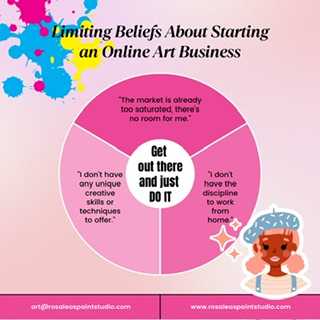While traditionally associated with entrepreneurship, a well-crafted business plan serves as a roadmap for artists, guiding them towards their goals, keeping them focused, and positioning them for potential funding opportunities.
Why Artists Need a Business Plan:
Clarity of Vision:
- A business plan forces artists to articulate their vision, mission, and goals clearly. It prompts reflection on what they want to achieve with their art, whether it's building a sustainable career, reaching a wider audience, or making a meaningful impact.
Goal Setting and Accountability:
- By outlining specific, measurable, achievable, relevant, and time-bound (SMART) goals, artists can break down their aspirations into actionable steps. A business plan holds them accountable, providing a framework to track progress and adjust strategies as needed.

Financial Management:
- Creating a budget, forecasting expenses, and estimating potential revenue streams are essential components of a business plan. Artists gain a deeper understanding of the financial aspects of their craft, enabling them to make informed decisions about pricing, investments, and resource allocation.
Market Research and Analysis:
- A comprehensive business plan includes market research and analysis, helping artists identify trends, understand their target audience, and assess competitors. This knowledge empowers them to position their work strategically, differentiate themselves, and capitalize on emerging opportunities.
Risk Mitigation and Contingency Planning:
- By conducting a SWOT analysis (Strengths, Weaknesses, Opportunities, Threats), artists can identify potential risks and challenges. A business plan prompts them to develop contingency plans, anticipate obstacles, and explore alternative courses of action, thereby minimizing uncertainty and maximizing resilience.
Professionalism and Credibility:
- A well-prepared business plan demonstrates professionalism and commitment to potential partners, investors, galleries, and collaborators. It instills confidence in stakeholders, showcasing the artist's strategic thinking, organizational skills, and long-term vision.
Preparation for Funding Opportunities:
- Whether seeking grants, sponsorships, loans, or crowdfunding, a solid business plan enhances an artist's chances of securing funding. It provides a compelling narrative, backed by data and analysis, that resonates with potential investors and donors, illustrating the viability and potential impact of their artistic endeavours.
Conclusions: In the ever-evolving landscape of the arts, a business plan serves as a compass, guiding artists through the complexities of the creative process and the business of art. It empowers them to navigate challenges, seize opportunities, and ultimately, realize their dreams. By embracing the discipline of business planning, artists can harness their creative energies, stay focused on their goals, and embark on a journey of sustainable success in the world of art.
Connect with Me:
Follow my art journey on social media
TikTok | Facebook | Instagram
Come and hang out at
Let's Create Together
Join our vibrant artistic community and unleash your creativity! Visit Rosa Lea's - Art Spark ⚡️ Beginner Painters Members Lounge to be part of the conversation, share your work, and connect with fellow artists.
Why Join?
Explore new possibilities, be part of a growing Community. There's a space for you to thrive and grow.
Your Artistic Adventure Awaits
Other Blogs by Rosa Lea
*5 steps to unlocking your creative potential
Social Media
F: Rosa Lea's Art Sparks Beginner Painters Lounge








